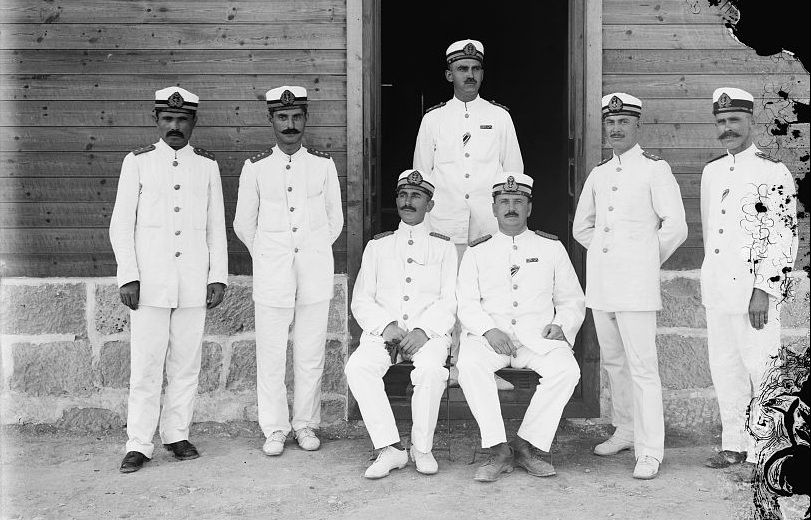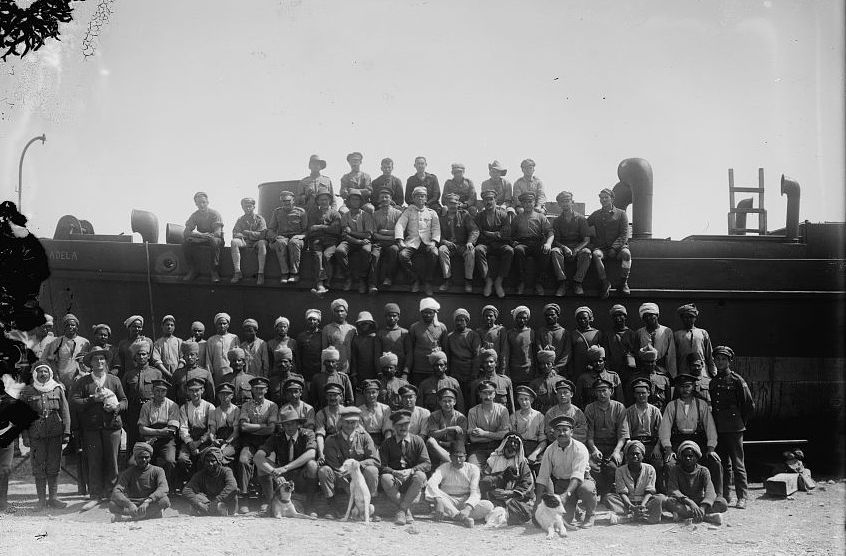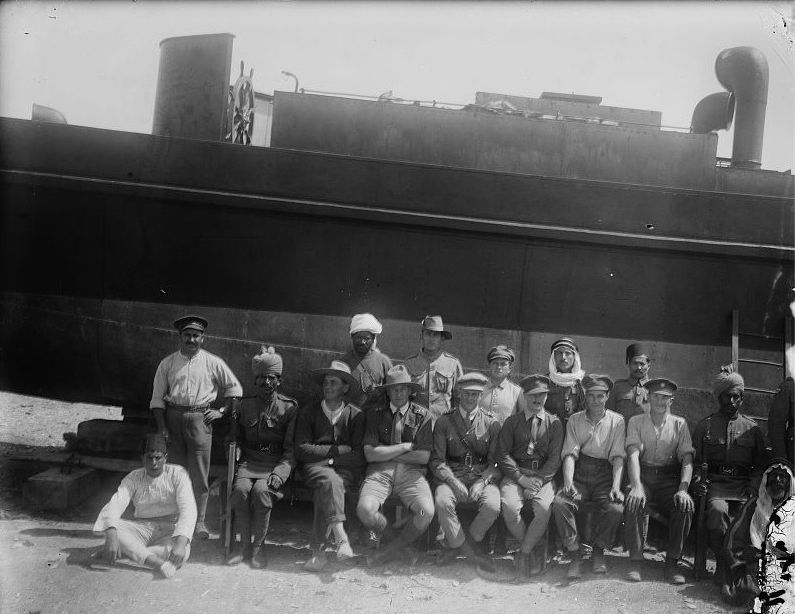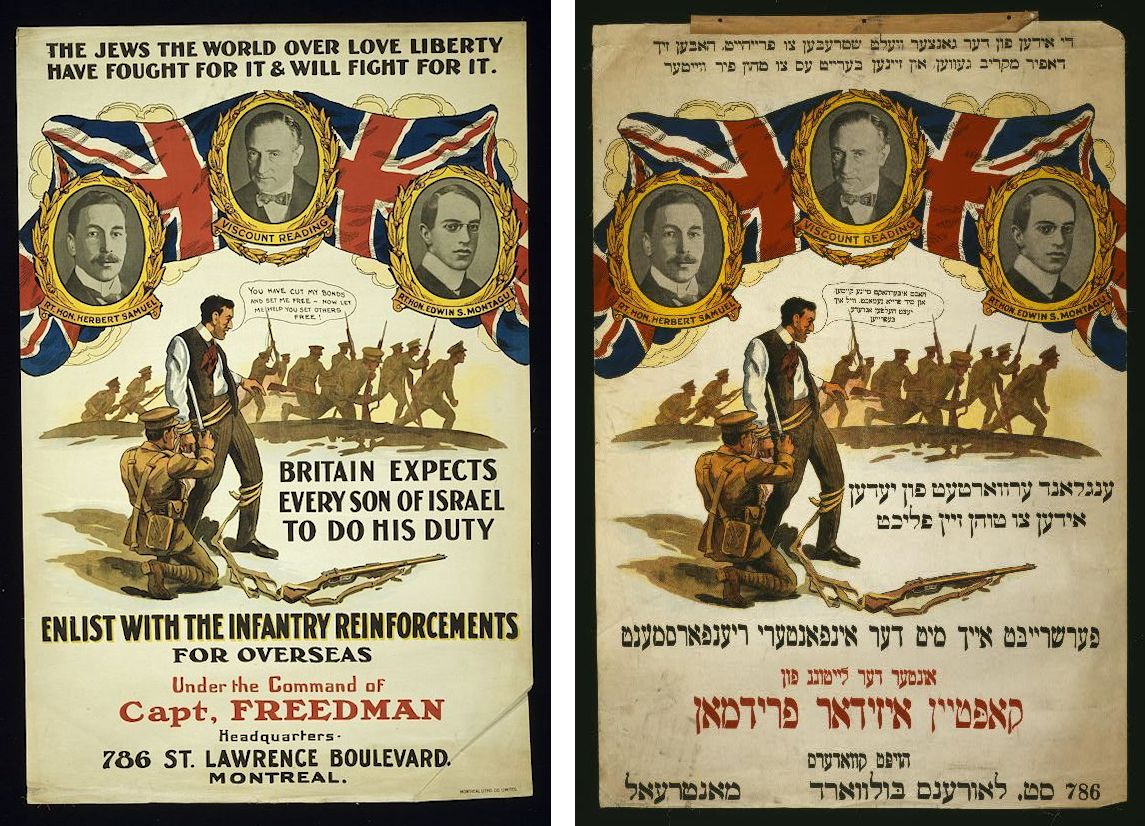![]()
This essay is from the Israel Daily Pictures (IDP) website, (Wed, July 4, 2012). To see other related photographic material from the Library of Congress, visit IsraelDailyPicture.com. For a free subscription, visit IsraelDailyPicture.com.
Last month Israeli newspapers reported on the discovery of a huge cache of guns, bullets, artillery shells and mines in the Dead Sea. Speculation suggested that the weapons belonged to the German army during World War I and were dumped in the sea. The salt water preserved the weapons which were exposed as the Dead Sea waters receded.

Guns revealed as waters receded. (Ynet, photo by Yoav Zitun)
Photographs in the Library of Congress — American Colony collection erase all speculation and show that the Turkish-German army was well dug-in along the shores of the Dead Sea. The weapons are certainly theirs.

A British soldier looks over the Dead Sea shore from captured Turkish trenches (1918). View another picture of Turkish defense lines here.
World War I was not only fought in Europe; the war was waged in the Middle East for four years and was conducted from the Suez Canal, all the way north to Damascus and east to Amman. After a slugfest in Gaza, the British army captured Beersheva and then Jerusalem in December 1917. But major battles continued in Palestine in 1918 along a line from Megiddo in the west, through Nablus in the northern hills, and to Jericho in the Jordan Valley.

Turkish naval officers at their Dead Sea base.
The Dead Sea served as a major artery for the Turkish-German armies, sending ships back and forth from eastern Palestine (later “Transjordan”) to western Palestine. In early 1918, according to one account, Australian fighter planes raked Turkish ships carrying grain and hay for the Turkish army and effectively put an end to the Turkish naval activities on the Dead Sea.

Turkish boat being transported to the Dead Sea (circa 1917).

British engineers with German POWs “boatbuilding” (1918), posed in front of the “Adela”
Several pictures in the collection show German prisoners of war in front of a ship bearing the name “Adela” on the shores of the Dead Sea.
The boat, quite possibly captured from the Turks, was named in honor of the wife of the British army’s commander, General Edmund Allenby.
Another photo of the ship, dated 1919, shows a wide-range of soldiers — British, Indian, Australian, and perhaps others.

A collection of soldiers from around the British empire (March 15, 1919)
The photo may reflect the fact that the “Western Front” war in Europe was not going well for Britain, and some 60,000 British soldiers were redeployed from Palestine to France. Their replacements included Sikh and Gurkhan troops, as well as Jewish volunteers who joined after the 1917 Balfour declaration. See the call for Jewish volunteers below.

British recruitment poster directed at Jews, in English and Yiddish. See another poster here.
According to the Library of Congress, the poster is entitled, “The Jews the world over love liberty, have fought for it & will fight for it … enlist with the infantry reinforcements”.
The poster shows a soldier cutting the bonds from a Jewish man, who strains to join a group of soldiers running in the distance and says, “You have cut my bonds and set me free — now let me help you set others free!” On the top are portraits of Rt. Hon. Herbert Samuel, Viscount Reading, and Rt. Hon. Edwin S. Montagu, all Jewish members of the British parliament. The poster lists at the bottom the commander, Captain Isador Freedman, headquartered on St. Lawrence Blvd in Montreal.



 RSS
RSS










[…] week we posted a feature (Thu, July 5, 2012) on the origins of a cache of antique German weapons found recently at the Dead Sea. The posting […]